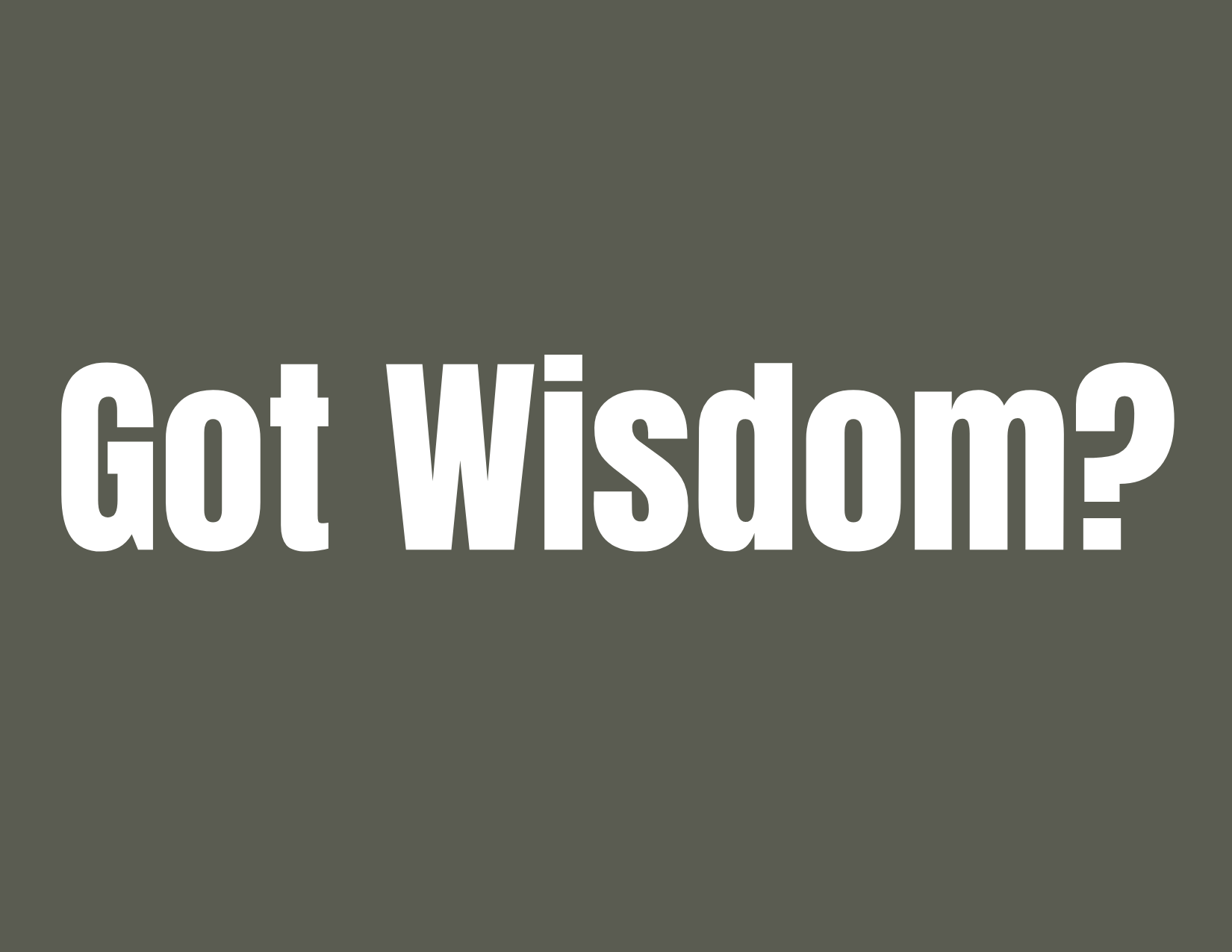The quest for wisdom has universal appeal. Countless Hollywood screenplays portray this part of the human experience. George Lucas, the creator of Star Wars, captures the hearts of generations with the compelling story of Luke Skywalker.
Luke Skywalker consults Jedi Master Yoda for insight on how to combat a vastly superior military force. He sets out to find Yoda because he’s sure that this master teacher has what he seeks. Luke learns from Yoda and discovers that he needs something greater than firepower and combat skills to bring down the evil Galactic Empire and restore peace and prosperity to The Republic.
Luke needs wisdom.
Doesn’t everybody want to be wise?
Wisdom can save careers, lives, money, marriages, families, and even Galactic Republics. It’s smart to seek wisdom before you enter into battle, but especially in the battles where you are disadvantaged. Many people wait until everything has “gone to hell in a handbasket” (meaning we wait until we are on a course for disaster) before asking for help or seeking wise counsel.
But what does it really take to Get Wise?
In the age of search engines, social media, and even blogs (like this one!) we have no shortage of advice in the form of online gurus and armchair experts. But how do we sift through information and find wisdom?
“We have oceans of information in this information age, but we are starving for wisdom.” – Anthony Robbins
Let’s define what wisdom is.
What is wisdom?
According to Wikipedia, wisdom is the ability to think and act using knowledge, experience, understanding, common sense and insight. Wisdom is associated with attributes such as unbiased judgment, compassion, experiential self-knowledge, self-transcendence and non-attachment, and virtues such as ethics and benevolence.
The Oxford English Dictionary defines wisdom as “Capacity of judging rightly in matters relating to life and conduct; soundness of judgement in the choice of means and ends; Charles Haddon Spurgeon defined wisdom as “the right use of knowledge.” Robert I. Sutton and Andrew Hargadon defined the “attitude of wisdom” as “acting with knowledge while doubting what one knows”. Psycanics defines wisdom as “the ability to foresee the consequences of action” (allowing one to avoid negative consequences and produce the desired positive ones.)
Ok…but what are the qualities that wisdom requires?
Humility – Wisdom requires an awareness of things yet to be learned. There is nothing so foolish as a person who thinks they know everything simply because they are formally educated. The wisest people possess a sense of humility about their expertise. They understand there’s always someone who knows, sees or understands more.
Honesty – When reflecting on their interactions with the world, wise people are honest with themselves about their actions. When looking at your interactions, ask yourself– was my contribution to this conversation/situation helpful or harmful?
Equity – It’s impossible to be wise without recognizing our bias. Judgements are based on feelings about a person or an organization. Feelings are based on beliefs. Beliefs are formed from the information we’ve been fed. It’s hard to step outside our biases and give the “other” perspective equal weight as our own.
If you think one person is a jerk and the other is fantastic, will you be able to see the truth about a conflict? You’ll be tempted to assume the jerk is wrong and the great guy is right simply because you’re biased based on your previous experiences. Wise people understand the biases they carry and are seekers of objective truth.
Insight – Wisdom is the accumulation and reflection of learnings either experienced or passed down through wise counsel. It is not born of simply collecting knowledge; it comes slowly and steadily through intelligent action and diligence in seeking wisdom. We would never think of someone as wise if their actions were foolish. Wise people possess keen insight into situations. They act upon previous experiences and wise advice. Wisdom is applied knowledge.
Part Two: Get Wise!
We’ve defined what wisdom is and identified some cornerstone characteristics. In our next blog post, we’ll explore some practical steps that will help you Get Wise.



